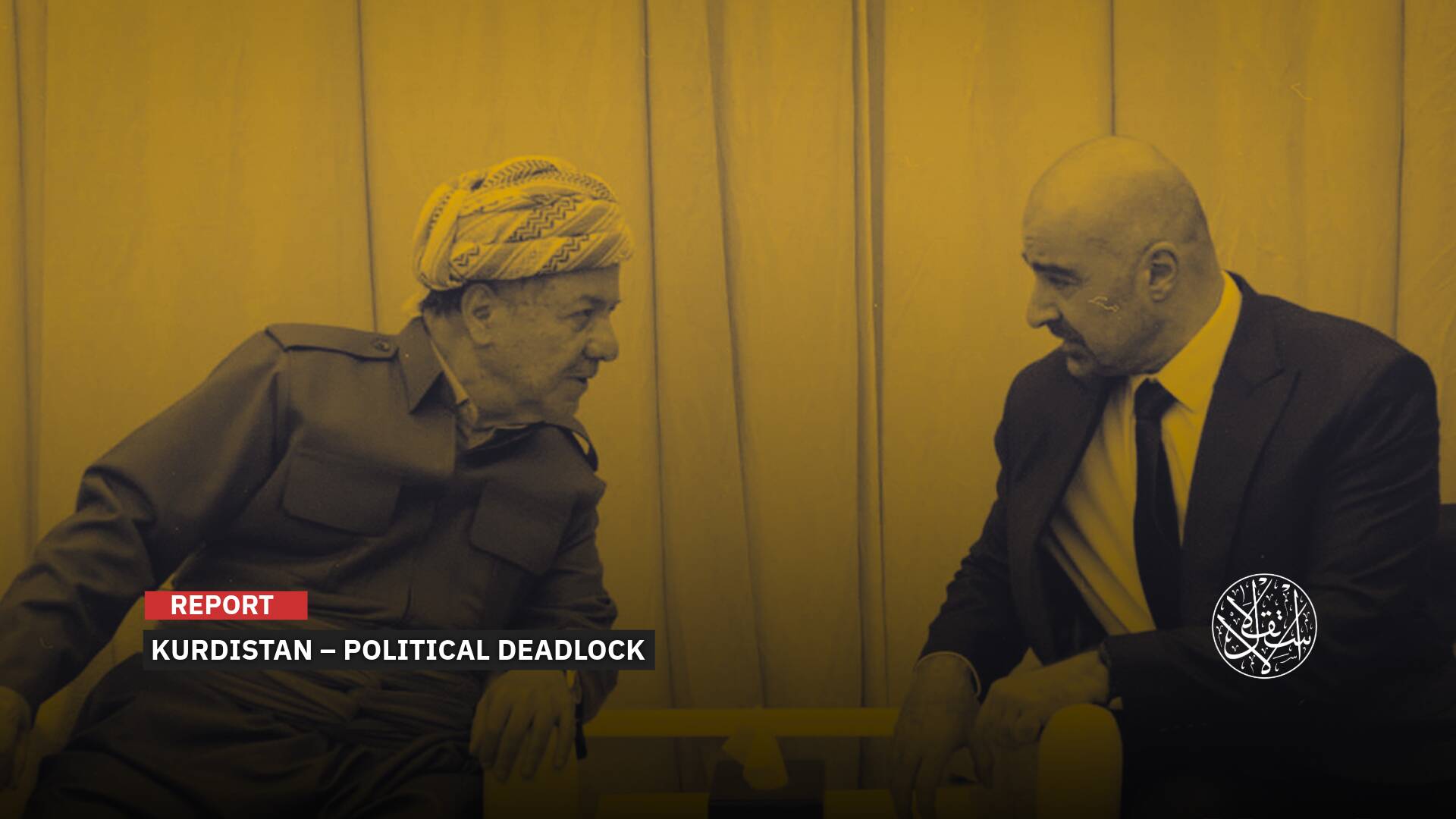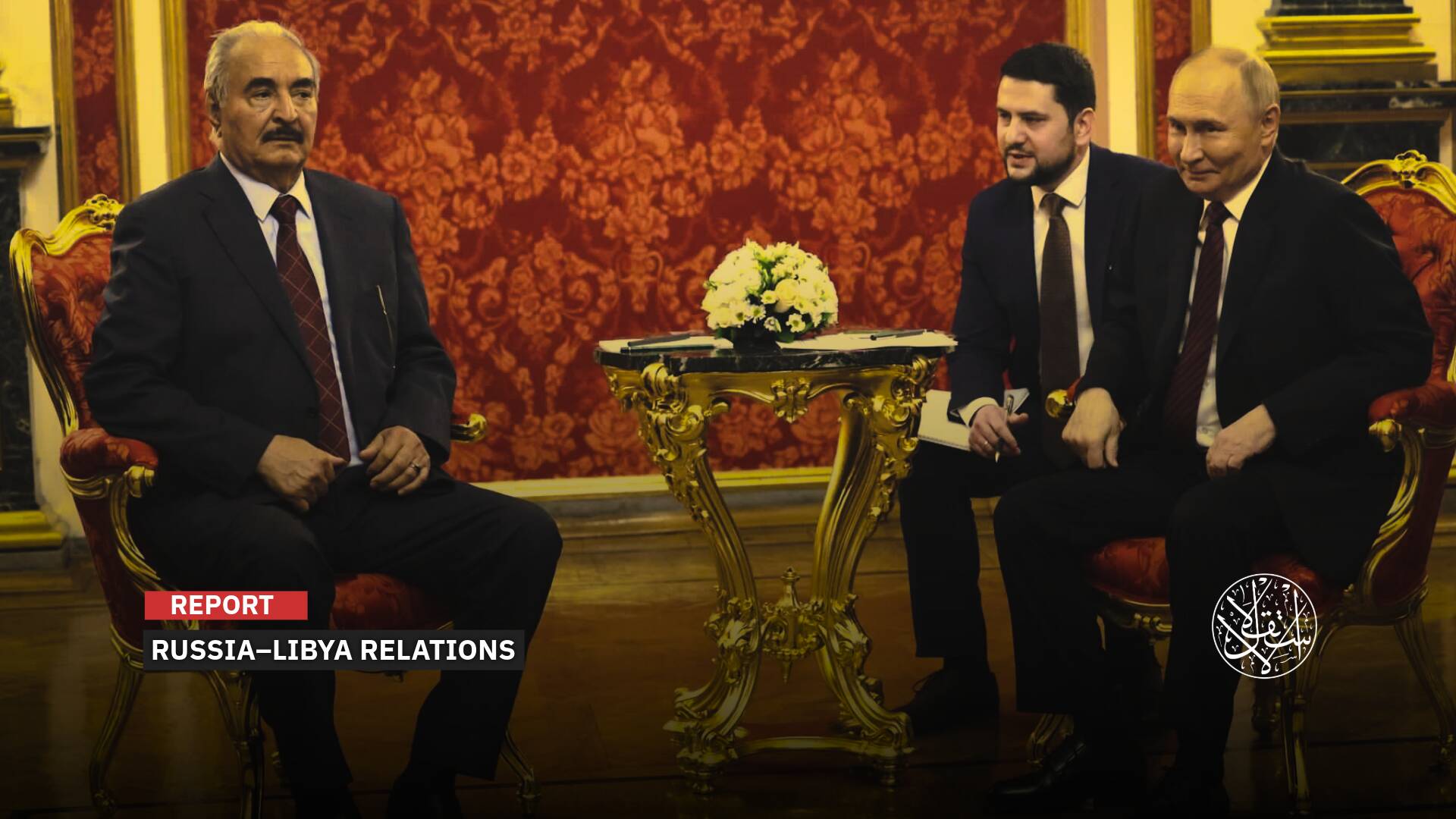Through the 'Zangezur Corridor': How Russia Dealt a Blow to Its Prominent Ally Iran

Russian officials confirmed Moscow's support for Baku's right to establish the Zangezur Corridor.
Despite the historical bilateral relations between Russia and Iran and their strategic alliance in the Middle East, a dispute has emerged following Russian President Vladimir Putin's visit to Azerbaijan. During this visit on August 19, 2024, Moscow's support for the establishment of the Zangezur Corridor—connecting Azerbaijan to Nakhchivan through Armenia—was announced.

Putin asserted Azerbaijan's right to have a land corridor linking it to the Nakhchivan region. Meanwhile, Russian Foreign Minister Sergey Lavrov criticized Armenia's refusal to implement the 2020 corridor and passage agreements.
The Zangezur Corridor, located in the South Caucasus and traversing the Syunik region in southern Armenia, aims to connect the Republic of Azerbaijan with the autonomous Nakhchivan region through Armenian territory. This corridor, linking Azerbaijan to Turkiye via Armenia and the Nakhchivan Autonomous Republic, seeks to eliminate barriers to regional cooperation that have existed for years.
The corridor will provide a new link between Ankara and Baku, passing through Armenia's Zangezur region, which separates Azerbaijan's mainland from the Nakhchivan Autonomous Republic bordering Turkiye.
Russia's approval thus serves the interests of both Turkiye and Azerbaijan. Armenia, however, does not oppose the corridor, which was a key point in the November 10, 2020 ceasefire agreement between Baku and Yerevan brokered by Moscow.
Iranian Reaction
Iran swiftly summoned Russian Ambassador Alexey Dedov, where Iranian Deputy Foreign Minister Mojtaba Demirchi-Lou conveyed Tehran's support for regional peace and stability and opposition to any changes in internationally recognized borders or the current geopolitical situation.
On September 3, Iran's Foreign Ministry stated that “the diplomats exchanged views on the ongoing events in the Caucasus, emphasizing respect for national sovereignty, territorial integrity, and mutual interests,” which are seen as “guarantees for sustainable peace and regional cooperation.”
In this context, Minister of Foreign Affairs of Iran Abbas Araghchi deemed any changes to existing borders completely unacceptable.
“Regional peace, security, and stability is not merely a preference, but a pillar of our national security. Any threat from north, south, east, or west to the territorial integrity of our neighbors or redrawing of boundaries is totally unacceptable and a red line for Iran,” Araghchi said on X.
Although the corridor does not pass through Iran but connects Azerbaijani territories via Armenia, Tehran views it as a “geopolitical change in the Caucasus threatening internationally recognized borders in the region.”
The corridor area is the only border zone between Iran and its ally Armenia, raising concerns for both countries about losing control and undermining Tehran's interests.
Iranian Parliament’s National Security and Foreign Policy Committee Chairman Ebrahim Azizi stated that the establishment of the Zangezur Corridor is a “red line for the Islamic Republic of Iran” and any actions or changes related to it will face a serious and firm response from Iran.
“Geopolitical shifts concerning the Zangezur Corridor are detrimental to regional interests, and Iran staunchly opposes them,” Azizi declared on September 7, according to IRNA.
He described the Zangezur Corridor as a false and illusory concept, suggesting that efforts are being made to reduce Iran's military and political power in the region through its establishment.
Azizi warned those pursuing these illusions that the repercussions of such decisions would be severe and costly. He emphasized that Iran would act rationally and wisely, never seeking to create tension in the region. However, if its territorial integrity is compromised, Iran will stand firmly and not allow any country to violate its sovereignty.

Geopolitical Revolution
On September 10, Iranian media launched a fierce attack on Russia, questioning its status as Iran's strategic ally. They argued that Moscow is using the Islamic Republic as a bargaining chip with the West.
Iranian newspaper Arman-e Melli reported on September 10 that former Iranian diplomat and writer Abdolreza Faraji stated that recent years have shown that “Moscow is not a strategic ally of Tehran,” emphasizing the need for Iran to recognize this reality.
Faraji cited several issues, including Russia's support for Arab countries in the dispute over the three islands (Greater Tunb, Lesser Tunb, and Abu Musa) that the UAE claims as its own while Iran occupies. He also mentioned Russia's failure to execute a $40 billion contract with Iran and its signing of the Caspian Sea agreement with four countries without considering Iranian interests. He asserted that such issues would not arise between strategic allies.
Former Iranian Ambassador to Russia Nematollah Izadi told Setareh Sobh on September 10 that “Tehran has been hit by the Russians, and it should no longer trust or rely on them.” He noted that Iran has repeatedly suffered due to Russian ambitions and that Russia always uses Tehran as a mediator in its international strategies.
“Whenever Western pressure mounts on the Kremlin, Moscow plays the Iranian card behind the scenes.”
In a similar vein, Heshmatollah Falahatpisheh, a former head of Iran’s national security and foreign policy commission, warned Moscow’s stance on the Zangezur corridor might be a pre-emptive attack by Putin to prevent the possibility of the formation of communication channels between the new government of Iran and the U.S.
Mohsen Rezaei, the secretary of the Expediency Council, which resolves issues between parliament and the Guardian Council, said, “The behavior of Russian statesman was not acceptable and in clear contradiction with their declaration of friendship with Iran, These ambiguities should be resolved.”
According to Shargh, former MP Ali Motahari said on September 5 that “The fourteenth government should be sensitive to the establishment of the Zangezur Corridor in Armenia, which Russia has recently shown interest in as well.”
“Russia has never considered Iran's interests, especially today when it is preoccupied with the Ukraine issue. This corridor closes the Iranian route to Europe through Armenia,” he added.
The last thing Russia wants today is to strain its relationship with Iran, which the West accuses of supplying Moscow with drones and ballistic missiles amid the ongoing war in Ukraine.

Russian Endorsement
Amid significant controversy and Iranian anger, Russian Security Council Secretary Sergei Shoigu confirmed on September 11 Russia's commitment to previous agreements with Tehran regarding the Zangezur Corridor. He noted that “Moscow's policy on this matter has not changed.”
During a meeting with his Iranian counterpart, Ali Akbar Ahmadian, on the sidelines of the BRICS summit in Saint Petersburg, Shoigu stated that “Moscow reaffirms its support for the territorial integrity of the Islamic Republic of Iran,” as reported by Mehr News Agency.
Iranian agencies celebrated Shoigu's statements, though they did not explicitly disclose a shift in Russia’s support for the Zangezur Corridor, which was approved by President Putin and the Foreign Ministry. This corridor was included in the trilateral document of the 2020 ceasefire agreement between Azerbaijan and Armenia, brokered by Russia.
The agreement between Russia, Azerbaijan, and Armenia outlined the creation of two corridors under Russian protection: the “Lachin Corridor” connecting Armenia to Nagorno-Karabakh, and the “Zangezur Corridor” linking Azerbaijan to Nakhchivan through Syunik in southern Armenia.
Russian Foreign Minister Sergey Lavrov expressed Russia's stance on the Zangezur Corridor in an interview with Russian Channel One on September 4. He stated, “We support the swift conclusion of a peace treaty between Baku and Yerevan [the capital of Armenia] and the removal of obstacles to communication.”
Lavrov described the Armenian government as an impediment to this process, saying, “Unfortunately, it is the one obstructing the agreement signed by Prime Minister Nikol Pashinyan regarding connections from the Syunik region in Armenia.”
“Due to Armenia's closure of the Zangezur port, communication in the region has become extremely difficult,” he added.

Sensitivity to the Russian position heightened following statements by Russian Foreign Ministry spokesperson Maria Zakharova, who said, “The Zangezur Corridor is the route that could connect Azerbaijan's main territory with Nakhchivan through Syunik in Armenia.”
In response to a journalist's question about Iran's stance, Zakharova replied, “We have observed Iran's concerns regarding the Zangezur Corridor. You should contact Tehran for clarification.”
“We operate on the basis that the solution should be acceptable to Armenia, Azerbaijan, and the region’s neighbors.”
Zakharova explained that “the opening of the Zangezur Corridor is an implementation of Article 9 of the peace agreement concluded in Moscow in November 2020.”
The current situation allows Iran to access northern countries—Georgia, Russia, and other European nations—through Armenia. Activating the corridor would block this route, isolate Iran, and grant Russia absolute security control over the South Caucasus region.
Sources
- End of the Armenia-Azerbaijan War: Winners and Losers [Arabic]
- Zangezur Corridor: Moscow vs. Tehran [Arabic]
- Zangezur Corridor: The Key to Unlocking Regional Cooperation (Report) [Arabic]
- National Security Chief: Establishing the Zangezur Corridor is a Red Line for Iran [Arabic]
- Russia Reaffirms Commitment to Previous Agreements with Iran Regarding the Zangezur Corridor [Arabic]
- How Did Iranian Circles Interpret Moscow's Stance on the Zangezur Corridor?" [Arabic]]
- Head of Parliament's National Security Committee: Iran Will Respond Firmly to Any Changes in the Zangezur Corridor [Arabic]
- Iranian Press: Tehran Hit by 'Blow' from Russia as Bread Prices Surge, Deepening Poverty [Arabic]
- Iran warns Russia against siding with Azerbaijan in border dispute
- Zangezur Corridor Scenario: Behind the Scenes of Public and Hidden Stances in Redrawing Borders [Arabic]
- Russia Backs Opening of Zangezur Corridor While Iran Views It as a Threat to Its Sovereignty [Arabic]











